Why do I need a food scale???
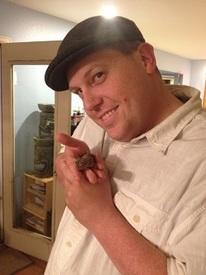
dtopo
Posts: 33 Member
So I just looked through my meal plan and the only measurements it calls for is cups, tbsp, tsp, etc.
No weights. It occasionally asks for one chicken breast or one tilapia fillet but does not list a weight for that.
And when I log the food on MFP I just put in EMEALS and the FOOD and it automatically add's it with all the nutrition info already input.
So why do I need to invest in a FOOD SCALE for success?
No weights. It occasionally asks for one chicken breast or one tilapia fillet but does not list a weight for that.
And when I log the food on MFP I just put in EMEALS and the FOOD and it automatically add's it with all the nutrition info already input.
So why do I need to invest in a FOOD SCALE for success?
0
Replies
-
Because cups and spoons are inaccurate for measuring food. If you measure out two tablespoons of peanut butter, it can weigh much more than the grams listed on the nutrition label, and you end up eating more than a serving. And how do you measure one cup of broccoli in a cup when it's so oddly shaped? Even prepackaged, individual serving foods can weigh more.
It's not required, but it's a valuable tool, especially as you get closer to your goal weight and have less room for error.0 -
You can probably get away without at first, but depending on your goals, it will be beneficial to have one (especially if you want abs). The reason being, the lower the body fat, the less room for error you have.0
-
"need" is subjective. Ultimately weight is the only way to be accurate. What you think is 1 cup of chicken could be 1.5 or 2 cups. If you go by cups, spoons for solid food then you're guessing. If you have a large calorie deficit, not a big deal. You may be annoyed at losing 1 pound a week instead of 2, but you'll lose. As you get closer to goal and have a smaller deficit (because a smaller body burns less calories) then accuracy may become very important.0
-
If you weigh food you have a better idea of how many calories you are eating against measuring in cups
Any calorie counting is estimates, using a cup to measure adds more element of error
I don't know about meal plans ...I eat what I want to my calorie defecit and it works ...I'm not one for being prescribed to
0 -
I personally went through my entire weight loss journey without a food scale because I knew weighing everything I ate would drive me crazy and into unhealthy habits.
However, like @malibu927 said, it leaves much less room for error, and a scale can be an extremely valuable tool. I think most people on here will recommend it, and I don't disagree with them.0 -
I used to eat "1" serving of peanut butter daily. That's 2 tbsp. Two tbsp of peanut butter, when I weighed it, was actually 1 and a half servings. Seems insignificant. Well, not really. That's 100 extra calories a day, 700 extra calories a week, 2800 extra calories a month. That's nearly a whole lb of fat I didn't lose because I measured peanut butter incorrectly. And that's just 1 single food!Because cups and spoons are inaccurate for measuring food. If you measure out two tablespoons of peanut butter, it can weigh much more than the grams listed on the nutrition label, and you end up eating more than a serving. And how do you measure one cup of broccoli in a cup when it's so oddly shaped? Even prepackaged, individual serving foods can weigh more.
It's not required, but it's a valuable tool, especially as you get closer to your goal weight and have less room for error.
Single serving prepackaged stuff often weighs more then 1 serving. I think it's horrible companies can do that. I feel like if a serving is 1 muffin (400g) then the 1 muffin in the package should weigh 400 grams. Often times it weighs much more but the company lists the smaller weight so the calories appear lower. I get there is going to be some variance but it should have a limit. 5% seems acceptable but it can be as high as 50% sometimes.
Long story short, you can't trust anything you didn't weigh. The food industry doesn't care about your waistline, they care about you buying their products over and over again.
0 -
I've lost weight without a scale, and with a scale. Right now I'm using it to get back on track. I need to re-learn my portion sizes.0
-
I used to eat "1" serving of peanut butter daily. That's 2 tbsp. Two tbsp of peanut butter, when I weighed it, was actually 1 and a half servings. Seems insignificant. Well, not really. That's 100 extra calories a day, 700 extra calories a week, 2800 extra calories a month. That's nearly a whole lb of fat I didn't lose because I measured peanut butter incorrectly. And that's just 1 single food!Because cups and spoons are inaccurate for measuring food. If you measure out two tablespoons of peanut butter, it can weigh much more than the grams listed on the nutrition label, and you end up eating more than a serving. And how do you measure one cup of broccoli in a cup when it's so oddly shaped? Even prepackaged, individual serving foods can weigh more.
It's not required, but it's a valuable tool, especially as you get closer to your goal weight and have less room for error.
Single serving prepackaged stuff often weighs more then 1 serving. I think it's horrible companies can do that. I feel like if a serving is 1 muffin (400g) then the 1 muffin in the package should weigh 400 grams. Often times it weighs much more but the company lists the smaller weight so the calories appear lower. I get there is going to be some variance but it should have a limit. 5% seems acceptable but it can be as high as 50% sometimes.
Long story short, you can't trust anything you didn't weigh. The food industry doesn't care about your waistline, they care about you buying their products over and over again.
Well said!0 -
If most of your food comes from a single serving box, you will have more luck without a scale.
If you cook from ingredients it's a lot harder to know if that densely packed or leveled off measuring cup is really a 'cup' of something. It's really easy to be off with cups and spoons because some things are not meant to be weighed by volume. The more accurate your data the more effective it will be. When you don't have much margin for error little mistakes in measurements can really add up. Often people find they 'plateau' once they have a small deficit and are using estimates.
Also it's much easier, have you ever tried making a salad using measuring cups? Or counted out chips or nuts for a serving?0 -
You dont automatically need one, but it can be a very useful tool to help you with accuracy of the food you are logging and the total amount of calories. Not to be ignored as a valuable tool especially if:
1. You arent intending to do any exercise, Which means you only have the food deficcit to rely on.
2. Calorie deficit is small, which means less margin for error.
3. You arent losing any weight and have stalled, which is a good sign you are eating at maintenance.
Not cimpulsory, but highly useful. Some people dont like weighing, but then you have to accept you will not be as accurate.0 -
I don't use mine all the time but on occasion they are useful. Mostly I use them for snacks like chips and crackers as my interpretation of a "serving" of these can be a little off and usually the package says a serving is X amount of chips or X ounces or something like that. Also for cheese it's good. Sometimes I use it for sausages that I get from my CSA farm because I'm adding something in here that's similar but not quite the same size. Either way I think the focus should be on eating whole, nutrient dense food proportionally but overall if you are one pea or chip off I don't think you need to fret.0
-
So I just looked through my meal plan and the only measurements it calls for is cups, tbsp, tsp, etc.
No weights. It occasionally asks for one chicken breast or one tilapia fillet but does not list a weight for that.
And when I log the food on MFP I just put in EMEALS and the FOOD and it automatically add's it with all the nutrition info already input.
So why do I need to invest in a FOOD SCALE for success?
what does a cup of chicken look like?
Also, you don't "need" one...it's a beneficial tool and helps you be more accurate. I can't tell you how many people I've seen log 4 oz chicken breast as a serving...but they're really eating a whole chicken breast which is usually closer to 8 oz...double what they are logging...and then they wonder why it isn't working.0 -
What others have said.
If you can measure out food items accurately based on cups and tablespoons, etc. then go for it. Based on my experience, I needed a food scale. My 1 tablespoon of almond butter was actually two, same with hummus and other dips and spreads. I was also eating double portions of pasta, rice, cereal, etc. When you're counting calories, these things add up.0 -
It's all about being as accurate as you can, as most other people have said. You don't NEED food scales for success, but what happens when you want to deviate from your meal plan or try a new recipe that uses grams rather than cups?0
-
-
I use mine all the time! I weigh meats, baked potatoes, things that don't fit neatly into a cup, etc. Its very useful. I don't know about you, but my steaks are measured by ounces not cups or tablespoons.0
-
Using a scale also makes life easier. For example, I wanted an ounce of grated cheese in my eggs this morning. I weighed the chunk of cheese and then grated over the eggs, reweighing, until the chunk weighed an ounce less. Voy-la!
Ever noticed how bread recipes measured in cups say things like "5 to 8 cups of flour?" That's because if you aren't measuring flour by weight, you have to know what the bread dough should feel like to know if you have enough flour in it. Bread bakers tend to measure all ingredients by weight. Depending on weather, how fast you scoop it, how close to the bottom of the container you are, etc., a cup of flour varies greatly as to how much flour it actually is. Now, those are incredibly small particles. What's a cup of salad croutons? How big are the croutons? A cup of grapes? Concords or scuppernongs? You see the problem.0 -
also because you may find yourself cramming ingredients into the measuring cup with no real idea of the proper portion ie: shredded cheese...I could probably pack about 1/2 cup serving into a 1/4 size.. Yeah I from Wisconsin and I have a cheese problem
 If you are just starting off and have a fair bit to lose, you will probably be okay with out it, but as others have said, the closer to goal the less room for error. 0
If you are just starting off and have a fair bit to lose, you will probably be okay with out it, but as others have said, the closer to goal the less room for error. 0 -
You don't NEED a food scale, but there's certainly a justification for it, as StaciMarie pointed out. Additionally, the food database contains things like "Generic - 1 piece chicken" and "Strawberries - 1 cup." It's fair to say that chicken comes in difference sizes and that by slicing strawberries you can fit more into a cup than you can by leaving them whole.
I'm in the states and I use my food scale. I have it set to measure grams, since that's a wee bit more specific than ounces. I make the food database work for me by including weight-related terms in my search where I can. You can do the same thing with ounces.
When I wanted to log the chicken breast that I just ate, I searched for "chicken breast grams" and it pulled up the entries that allowed me to measure by grams.
Another thing to note: measuring spoons, for example, aren't the same. A "teaspoon" in the US is actually .83 of a teaspoon in the UK. So, just because something says "a teaspoon", there's no way of knowing exactly how much that really is. 0
0 -
You don't. I don't weigh anything. Never have. I do use measuring cups and spoons though.0
-
If you are having success that makes you happy without it, you pretty much don't.
If you need to be a bit more accurate, you do need it. That's all.0 -
You don't really "need" one (IMO). However, food scales are eye opening! For example, 30g of cheese (which is what my cheese nutrition label provides amounts for) does not look like what you wish 30g of cheese would look like! Or, my "medium apple" I was constantly logging was 80-100 calories less than my "apple weighed" actually was, same with my bananas. I know it seems like a small amount, but having a food scale helped opened my eyes to how many things I was just guesstimating and showed me where I was ultimately overeating calories.0
-
Cheese is actually a great example. One serving is 1 oz by mass....an ounce of cream cheese looks different (and has different volume, which is measured by cups and spoons) than an ounce of hard cheddar or an ounce of brie. Heck, even an ounce of the same hard cheddar looks very different if it's in one piece, or shredded, or sliced thinly with a cheese plane.
Chicken and fish cuts vary in thickness. I find that fish filets in particular can be very deceptive to "eyeball" for portion size....The scale is such a benefit.
(Interesting side note: Most serious bakers prefer to use the European method of weighing ingredients rather than using volume measurements...because even something as "standard" as flour or sugar cannot be optimally measured using cups and spoons)0 -
When I started I didn't use a scale, after about 4 months, I decided to buy one and on some things I found I was definitely over estimating, like meat, but on others, I was under. That month I had my largest month loss since I've been on MFP, I don't think it was a coincidence, but with all the things that effect your weight , maybe. Bottom line buy one if you want to.0
-
I used to eat "1" serving of peanut butter daily. That's 2 tbsp. Two tbsp of peanut butter, when I weighed it, was actually 1 and a half servings. Seems insignificant. Well, not really. That's 100 extra calories a day, 700 extra calories a week, 2800 extra calories a month. That's nearly a whole lb of fat I didn't lose because I measured peanut butter incorrectly. And that's just 1 single food!Because cups and spoons are inaccurate for measuring food. If you measure out two tablespoons of peanut butter, it can weigh much more than the grams listed on the nutrition label, and you end up eating more than a serving. And how do you measure one cup of broccoli in a cup when it's so oddly shaped? Even prepackaged, individual serving foods can weigh more.
It's not required, but it's a valuable tool, especially as you get closer to your goal weight and have less room for error.
Single serving prepackaged stuff often weighs more then 1 serving. I think it's horrible companies can do that. I feel like if a serving is 1 muffin (400g) then the 1 muffin in the package should weigh 400 grams. Often times it weighs much more but the company lists the smaller weight so the calories appear lower. I get there is going to be some variance but it should have a limit. 5% seems acceptable but it can be as high as 50% sometimes.
Long story short, you can't trust anything you didn't weigh. The food industry doesn't care about your waistline, they care about you buying their products over and over again.
They're allowed 20% variance. They go over not because of some nefarious scheme to make people over eat, but thanks to law suits and laws passed that fine them for being just a gram or two under the weight claimed on the packaging.
Same reason a "baker's dozen" is 13. If a baker was caught selling less than the weight he was supposed to, he was heavily punished, so they usually threw in an extra to make sure they made the weight.0 -
This is why *I* need a food scale
 :
: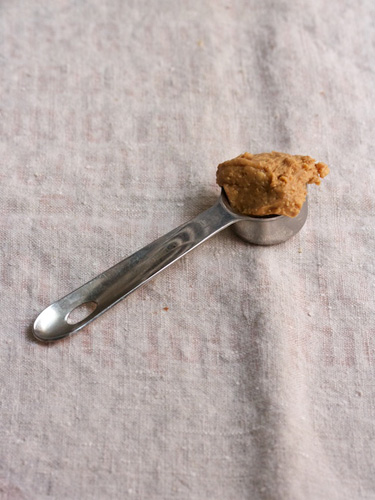
I'm the queen of the "heaping" spoon/cup. I'm terrible at measuring things (probably why I can't bake from scratch--TERRIBLE), and I'm not ashamed to admit it. Food scales help me to get the portions and calorie count to agree. I have the confidence that what my diary says IS the amount I'm eating.0 -
When I started out my hubby told me to use the scale he was using. I thought it was dumb. I mean, I had cups and stuff! I could measure a cup of something, easy peasy. Then I learned that the volume measurements are not able to provide accurate servings for most things. I tried doing volume measurements for a few items and then weighing them and the volume measurements were sometimes off to such a ridiculous extent that I just knew it would end up biting me in the rump later. I mean, if I am going to track calories, I figured I may as well have as accurate an assessment of what I am tracking that I can. I only do cup measurements for liquids now.0
-
Pour yourself what you think is one service of cereal and then using a scale, pour the amount stated as a serving. You will over estimate everytime. Same goes if eating 2oz of lunchmeat vs what you think is 2oz.0
-
This is why you need a food scale:
0 -
So I just looked through my meal plan and the only measurements it calls for is cups, tbsp, tsp, etc.
No weights. It occasionally asks for one chicken breast or one tilapia fillet but does not list a weight for that.
And when I log the food on MFP I just put in EMEALS and the FOOD and it automatically add's it with all the nutrition info already input.
So why do I need to invest in a FOOD SCALE for success?
I think it depends. I don't use one, and I'm losing at a steady pace. If I stopped seeing the results I expect from the CICO calculations, then I would assume that either I was eating more than I thought or burning less than I thought and I would look into a food scale and a heart rate monitor.
0
This discussion has been closed.
Categories
- All Categories
- 1.4M Health, Wellness and Goals
- 398.4K Introduce Yourself
- 44.7K Getting Started
- 261K Health and Weight Loss
- 176.4K Food and Nutrition
- 47.7K Recipes
- 233K Fitness and Exercise
- 462 Sleep, Mindfulness and Overall Wellness
- 6.5K Goal: Maintaining Weight
- 8.7K Goal: Gaining Weight and Body Building
- 153.5K Motivation and Support
- 8.4K Challenges
- 1.4K Debate Club
- 96.5K Chit-Chat
- 2.6K Fun and Games
- 4.7K MyFitnessPal Information
- 17 News and Announcements
- 21 MyFitnessPal Academy
- 1.5K Feature Suggestions and Ideas
- 3.2K MyFitnessPal Tech Support Questions





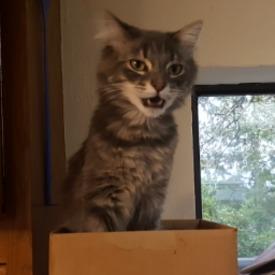
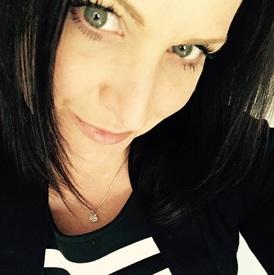





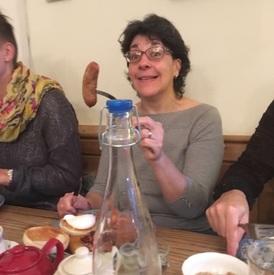






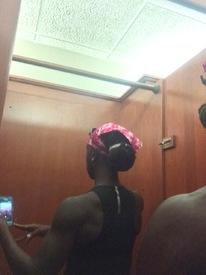









 https://www.youtube.com/watch?v=XpHykP6e_Uk
https://www.youtube.com/watch?v=XpHykP6e_Uk